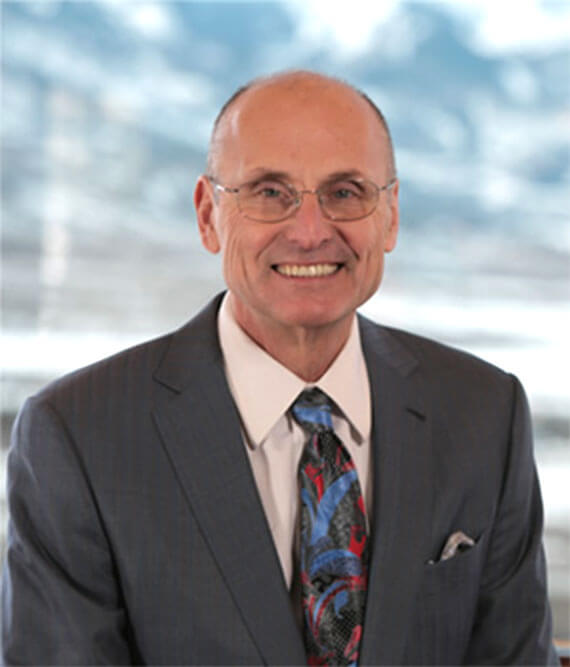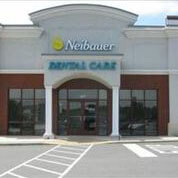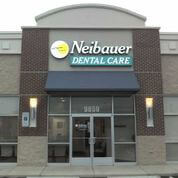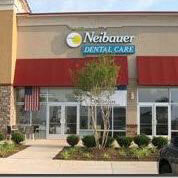Meet Chris

Chris Neibauer grew up on the lowest rung of the middle class, wearing hand-me-downs. He learned early on that taking action pays off.
His earliest childhood memory is making potholders to sell door-to-door during elementary school. He’d hold up his loomed creation, flash his blue-eyes and smile, and neighbors would pay for his wares. By high school, Chris was working multiple jobs, buying all his own clothes, and was financially self-sufficient.
Despite being a self-described “not great” student, Chris went to college and it was there he decided his purpose was to become a dentist. He went on to dental school, graduating in 1976, and opened his own dental practice.
Chris had married his high school sweetheart Sue, and they had two young children. He was living the American Dream: a good education, a thriving business, a nice home, and a loving family.
One day Chris’ wife approached him with a pamphlet from the church they attended. It told of missionary work in Cameroon – western central Africa.
The family
The family spent five years in Cameroon in a simple dwelling that had electricity about half the time and water less often than that. Chris viewed this as an adventure. How Chris chose to frame it colored both his and his family’s experience of those years. In fact, “master your thoughts” later became a core principle for Chris and his philosophy of Unconditional Responsibility™. When Chris arrived in Cameroon, there were two other missionary dentists there. Each manned one dental chair and worked on one patient at a time – usually for about an hour each, just as they had in dental school. People traveled from far away, needing dental care and the place frequently swelled with waiting patients. Each hour that they weren’t getting to another patient was another hour someone remained in pain. Chris found this unacceptable. A group of business people donated the funds to have more dental chairs installed. Chris then manned four chairs by himself – working harder and faster so he could serve multiple patients at a time. That meant fewer people in pain. Two more core principles solidified in Chris’ mind: serve others with a sense of urgency. Chris believed a great person could do the work of three goods ones. So he worked diligently to be sure each patient was treated, even coming in during his off hours to help out. He pushed himself to do things more efficiently, without sacrificing quality, by applying more concentration and effort.
Chris also learned to work with what he had. Cameroon had its own kind of beauty, but what it didn’t have was a Home Depot or an IKEA store. So Chris made kitchen cabinets out of found materials. They weren’t pretty, but they were all they needed to be to get the job done. He learned not to blame his finances or circumstances, but to create what he needed in order to live out his purpose. Eventually, Chris and Sue chose to leave Cameroon and raise their children in America. Chris had earned a modest salary while overseas: $10,000 a year, plus the missionary organization tucked a small amount in a savings account in the States for their return. When they moved home, they had more money in the bank than when they’d left—Chris realized that serving others does not have to mean draining oneself.
Waldorf
Soon after his return, Chris opened another dental practice in Waldorf, MD. Competition was high with lots of dentists in the area, and HMOs had come on the healthcare scene making it harder to turn a profit. By 1995, Chris was paying his bills and employees but was unable to pay himself a salary. So he took his credit card and took action. He booked himself tickets to multiple seminars led by dental experts and by personal productivity experts. At each one he sat in the front row, took notes vigorously, and asked questions. He got out of his own way and learned from those working at world-class levels, applying what he learned with a sense of urgency – often calling his dental practice from his seminar seat to tell them to implement what he just learned. Back in Waldorf, Chris made a point of offering top-notch service. He answered the phone himself as often as he could. He learned to do routine procedures, such as making a crown for a tooth, in a third of the typical time without sacrificing quality. His patients were happy to get great personal care and spend less time in the chair.
Chris and Sue chose to live in the city – most dentists commuted into Waldorf – so he could get to work faster. He even saw patients in pain or need over the weekend, while most dentists had patients wait until Monday.
Neibauer Dental Care grew. Chris had maxed out his credit card buying tickets to all those seminars, but the knowledge he gained paid off. In five years’ time, Chris was able to open not one, but two more practices. Five years after that, in 2005, his still expanding dental network earned $6.5 million.
Chris continued to learn and serve, taking unconditional responsibility for his success, and maintaining a high quality of care. He also helped others around him do the same. He’d go to several of his dental offices each week, gather everyone in the office, and speak to them, motivating them to work smarter, serve harder, and evolve into the person they wanted to be.
Three years later, in 2007, his dental network earned $20 million. Throughout the recession of the late 2000’s, Neibauer Dental Care expanded further and increased its annual income by $10 million each year. Chris found that when you think limitlessly, you take action and see limitless results.
He profitably sold his dental network of 26 practices in 2011.
Chris is still married to his high school sweetheart today, and his grown children are leading successful lives of service. They treasure their early years in Cameroon, as well as the lessons they’ve learned from their dad.
Now Chris is ready to teach you what he’s learned, through a mindset of Unconditional Responsibility™.
Chris Neibauer was no different than you. He had no more raw materials to work with to create a successful life than you currently do. He was just willing to learn from others ahead of him on the curve—and determinedly implement what he learned.





